
Manfred Mann were an English rock band, formed in London and active between 1962 and 1969. The group were named after their keyboardist Manfred Mann, who later led the successful 1970s group Manfred Mann's Earth Band. The band had two different lead vocalists, Paul Jones from 1962 to 1966 and Mike d'Abo from 1966 to 1969.

Manfred Mann's Earth Band are an English rock band formed by South African musician Manfred Mann. Their hits include covers of Bruce Springsteen's "For You", "Blinded by the Light" and "Spirit in the Night". After forming in 1971 and with a short hiatus in the late 1980s/early 1990s, the Earth Band continues to perform and tour.

Michael David d'Abo is an English singer and songwriter, best known as the lead vocalist of Manfred Mann from 1966 to their dissolution in 1969, and as the composer of the songs "Handbags and Gladrags" and "Build Me Up Buttercup", the latter of which was a hit for The Foundations. With Manfred Mann, d'Abo achieved six top twenty hits on the UK Singles Chart including "Semi-Detached, Suburban Mr. James", "Ha! Ha! Said the Clown" and the chart topper "Mighty Quinn".

"Quinn the Eskimo (The Mighty Quinn)" is a folk-rock song written and first recorded by Bob Dylan in 1967 during the Basement Tapes sessions. The song's first release was in January 1968 as "Mighty Quinn" in a version by the British band Manfred Mann, which became a great success. It has been recorded by a number of performers, often under the "Mighty Quinn" title.

"Just Like a Woman" is a song by American singer-songwriter Bob Dylan from his seventh studio album, Blonde on Blonde (1966). The song was written by Dylan and produced by Bob Johnston. Dylan allegedly wrote it on Thanksgiving Day in 1965, though some biographers doubt this, concluding that he most likely improvised the lyrics in the studio. Dylan recorded the song at Columbia Studio A in Nashville, Tennessee in March 1966. The song has been criticized for supposed sexism or misogyny in its lyrics, and has received a mixed critical reaction. Some critics have suggested that the song was inspired by Edie Sedgwick, while other consider that it refers to Dylan's relationship with fellow folk singer Joan Baez. Retrospectively, the song has received renewed praise, and in 2011, Rolling Stone magazine ranked Dylan's version at number 232 in their list of the 500 Greatest Songs of All Time. A shorter edit was released as a single in the United States during August 1966 and peaked at number 33 on the Billboard Hot 100. The single also reached 8th place in the Australian charts, 12th place on the Belgium Ultratop Wallonia listing, 30th in the Dutch Top 40, and 38th on the RPM listing in Canada.
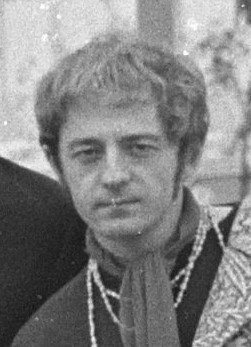
Michael John Hugg is a British musician who was a founding member of the 1960s group Manfred Mann.
The Manfreds is a British pop group, formed in 1991 as a reunion of former members of the 1960s pop group Manfred Mann, however without their eponymous founder Manfred Mann.
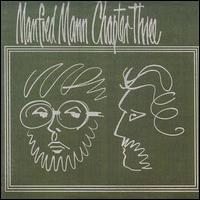
Manfred Mann Chapter Three is the debut album released in 1969 by Manfred Mann Chapter Three. It was one of the three first albums released on the Vertigo record label. The principal members of the group were Manfred Mann and Mike Hugg. Mann played the organ and acted as the group's musical arranger, whilst Hugg handled vocals, played piano and was the chief songwriter. The group was augmented by a five-piece brass section and several distinguished jazz soloists.
"5-4-3-2-1" is a 1964 song by British band Manfred Mann. It was written by Mann, Mike Hugg and Paul Jones, and peaked at #5 on the UK Singles Chart thanks to weekly television exposure from being the theme tune for the ITV pop music television programme Ready Steady Go!. This would be the last single released before bass player Dave Richmond left the band.

A Sideman's Journey is the first solo album by German musician and artist Klaus Voormann, released in July 2009. Voormann is best known as the creator of the cover art for The Beatles' album Revolver as well as for being a much-in-demand session musician during the 1970s. He played bass on a large number of well-known albums by ex-Beatles John Lennon, George Harrison and Ringo Starr − including All Things Must Pass, Imagine and The Concert for Bangladesh − and by artists such as Harry Nilsson, Doris Troy, Lou Reed, Gary Wright, Carly Simon and Randy Newman. Before then, Voormann had been a member of the 1960s pop group Manfred Mann. A Sideman's Journey is notable for including performances by Paul McCartney, Ringo Starr and Yusuf Islam, among others.

As Is is the third British studio album by Manfred Mann, released in the United Kingdom on 21 October 1966 through Fontana Records. It was their fourth overall but their first to feature new members Mike d'Abo and Klaus Voormann.

Instrumental Assassination is a 1966 jazz-rock EP by Manfred Mann, produced by Shel Talmy and released by Fontana Records (TE17483). Mann reported that the group "loved it" and the producer was "particularly pleased": Fontana's Jack Baverstock found it full of ideas, humour and new thinking, but the EP sold poorly and was re-released in its entirety on the 1968 Fontana compilation album What A Mann.

Up the Junction is the first soundtrack and fourth studio album by Manfred Mann, consisting of songs written by Mann and Mike Hugg for the 1968 film of the same name. The album was released on 16 March 1968 on Fontana Records.
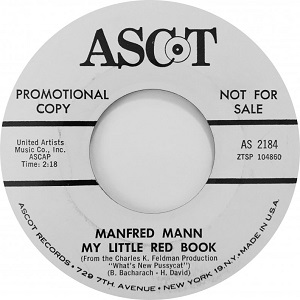
"My Little Red Book" (occasionally subtitled "(All I Do Is Talk About You)") is a song composed by American songwriter Burt Bacharach with lyrics by Hal David. The duo were enlisted by Charles K. Feldman to compose the music to Woody Allen's film What's New Pussycat? following a chance meeting between Feldman and Bacharach's fiancé Angie Dickinson in London. "My Little Red Book" was composed in three weeks together with several other songs intended for the movie. Musically, the song was initially composed in the key of C major, largely based on a re-iterating piano riff performed. David's lyrics tells the tale of a distraught lover, who after getting dumped by his girlfriend browses through his "little red book" and taking out several girls to dance in a vain effort to get over her.

"Ha! Ha! Said the Clown" is a song written by Tony Hazzard, first recorded by British pop group Manfred Mann. Hazzard claims the song "came out of the blue" though he did not demo it for weeks. Following recording a demo, he approached manager Gerry Bron, who liked it enough to want one of his groups, Manfred Mann, to record it. Manfred Mann recorded their version of the single on 10 February 1967 at Philips Studio in Marble Arch, London, together with producer Shel Talmy. It was the second of three singles Manfred Mann recorded to feature the Mellotron.
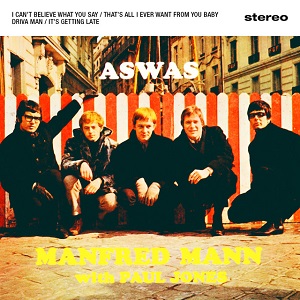
As Was is an EP by Manfred Mann, released in 1966. The EP is a 7-inch vinyl record and released in mono with the catalogue number His Master's Voice-EMI 7EG 8962.
"Come Tomorrow" is a song written by American songwriters Bob Elgin, Dolores Phillips and Frank Augustus for rhythm and blues singer Marie Knight, who issued it as a single in October 1961 through Okeh Records, a release which received good reviews, though failed to chart. The best known version of the song was recorded by British pop band Manfred Mann, who took it to the top-ten in the United Kingdom in 1965.

The Manfred Mann Album is the debut American studio album by Manfred Mann, released in September 1964 on Ascot Records. It contains the hit single "Do Wah Diddy Diddy", as well as covers of well-known R&B hits such as "Smokestack Lightning" by Howlin' Wolf, "I'm Your Hoochie Coochie Man" by Muddy Waters, and "Down the Road Apiece" by Will Bradley. Modern reviews of the album are generally positive and consider The Manfred Mann Album an important piece during the heydey of the British Invasion.

The Five Faces of Manfred Mann is the debut British and second American studio album by Manfred Mann. It was first released in the United Kingdom on 11 September 1964 by His Master's Voice. In late October/early November, the album was released in Canada by Capitol Records. The Canadian track listing was almost the same as the UK version, except it included the hit "Do Wah Diddy Diddy" instead of "I've Got My Mojo Working". The record has been called "one of the great blues-based British invasion albums; it's a hot, rocking record that benefits from some virtuoso playing as well".
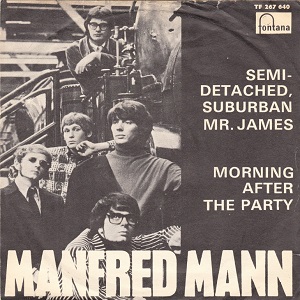
"Semi-Detached, Suburban Mr. James" is a song written by songwriters Geoff Stephens and John Carter, recorded by English pop group Manfred Mann in 1966. Stephens and Carter, who were writers for a publishing company on Denmark Street, London, wrote the song in a style different from their usual compositions, as love was not the prevalent theme. Introduced to the song by producer Shel Talmy, Manfred Mann recorded it at Philips Studio in August 1966. Released by Fontana Records on 21 October 1966, the song was backed by drummer Mike Hugg's composition "Morning After The Party" as the group's second single on the label. Keyboardist Manfred Mann plays the Mellotron on the recording; it was one of the earliest recordings featuring the instrument. Following a trend set by Bob Dylan, the song tackles the subject of life in British middle class suburbia from the perspective of a narrator, who laments the loss of a lover after her marriage to another man.


















